Anne Maria Clarke explores Tolkien's Master-class
The realm of fairy-story is wide & deep & high. In that land one may perhaps count oneself fortunate to have wandered but its very mystery & wealth make dumb the traveller who would report. The fairy gold too often turns to withered leaves when it is brought away. All that I can ask is that you – knowing all these things - will receive my withered leaves as a token at least that my hand once held a little of the gold.
J.R.R Tolkien – On Fairy -stories (draft manuscript)
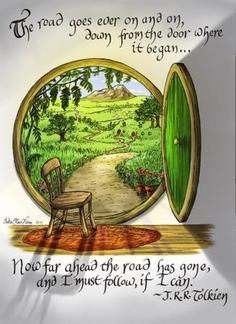
He leaves the whole thing utterly open ended aside from the following provisos: first that though the Perilous Realm contains familiar aspects derived from what he calls our primary, everyday reality – this secondary realm – in order ‘to work’ or to be ‘believable’ - must be totally consistent within itself – & that the magic therein must never ever be belittled or made fun of.
In 1939, based upon the immense success of The Hobbit which had been published in 1937 Tolkien was asked to give a lecture for the Andrew Lang society at the University of St Andrews, for which the article On Fairy-stories was written & first presented. There were numerous drafts – as was Tolkien's way -& the opening quote referencing the fairy gold was omitted from his final version possibly on the grounds of it being thought too presumptuous a revelation to make about himself - & yet it so perfectly elucidates the nature of his travels within the Faërie Realm that it seems pertinent to re-instate it – for you see – this is where he spent so much of his time – after attending Mass, which he did several times a week, after his job was done, his dinner enjoyed with his family, his children read to and put to bed in his ordinary, everyday Oxfordshire home – this is where he would go, puffing on his evening pipe, deep into the great beyond - often not returning until the early hours of the morning.
So when we read his wondrous tales, or contemplate the words he wrote On Fairy-stories we would do well to remember that what we are really reading or listening to are the words of an incredibly seasoned traveller – someone who has walked wherever his heroes and heroines have walked – all the way out of the Shire, if you like, right through Middle Earth to Mordor & back again, bringing not just faded, withered leaves as he so humbly acknowledges - but real fairy gold, bright & true and radiant as
the sun.
DEFINITIONS
On Fairy-stories poses a series of questions which Tolkien considers in turn, teasing out the elements of what for him constitutes an authentic tale within the genre.
He begins by setting forth the Oxford Dictionary definition (a publication he worked for briefly as a Philologist after recovering from trench fever following his return from France in 1916) yet he disagrees vehemently with every word set down. ….. Fairies he asserts are not diminutive in size as is commonly assumed – it is us who are small compared to them! Nor, surprisingly for some, did he consider the tales as being primarily for children – the association he regarded as being an unfortunate consequence of the so called 'Enlightenment.' His own taste for such tales was not a characteristic of his childhood he says but was awakened through his study of Philology and quickened to life by war.
What then constitutes an authentic tale in this genre? Certainly not those stories he claims, that whilst fantastical in themselves are presented as dreams, or time – travel adventures or journeys to far flung destinations in the primary world. Neither does he consider allegory or tales of moral guidance set within a once upon a time frame authentically of the genre.
They are not delusions, illusions or manifestations of mental pathology in any way.
No! Faërie is an altogether different realm with an ontology all of its own.
In that world a tree is a Tree, and its roots may run throughout the earth, and its fall affect the stars. It is enchanted ..... as we are when we cross its borders.
J.R.R Tolkien – On Fairy -stories
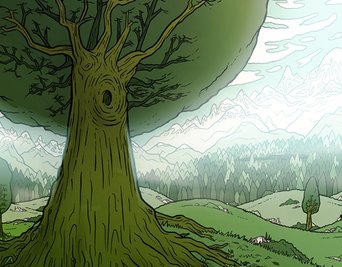
The origin he tells us, is simply the dimension of Faërie itself and the stories, as indicated – of those writers, artists, bards, shamans, healers and plain ordinary folk who have ventured forth.
Such realms are not simply made up as is commonly assumed but rather possess their being-ness independently – of this he is quite clear.
They arose in my mind as 'given' things, he wrote to his son Christopher,and as they came, separately, so too the links grew. An absorbing, though continually interrupted labour. Yet always I had the sense of recording what was already 'there', somewhere: not of inventing.
A new character has come on the scene, he explains, I am sure I did not invent him, nor even want him? though I like him – but there he came, walking out the woods - he is so talkative - if he keeps on in this way I will have to put him in the appendices.
J.R.R.Tolkien: Letters
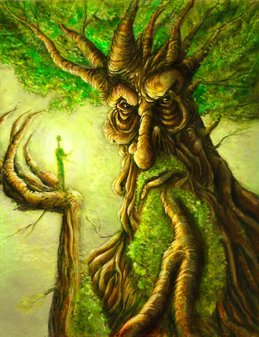
FANTASY & ESCAPE
Faërie is a realm of power, Tolkien writes : fantasy is the means of entering it.
His great book the Silmarillion– begun during and shortly after his return fromn WW1 with Trench Fever– a book although unfinished and published posthumously by his son – he regarded as the true source and font from which everything he subsequently wrote had issued forth – begins with a most sublime creation myth. All here – and this is utterly consistent with other great mythologies from around the world – is created by vibration – a deep song – vibrating throughout the heavens – bringing form to the worlds of Faerie, to Middle Earth aeons before the days of The Hobbit and Lord of the Rings.
And when Tolkien speaks of en-chant-ment this is something of what he is alluding to – of somehow being brought within that deep song – of attuning to its unique vibrational frequency or morphic field - where the laws of our everyday world have no meaning and where all manner and strange & fantastical creatures have their being.
There is a very famous conversation, alluded to in the essay On Fairy-stories said to have taken place in 1931 between Tolkien & C.S Lewis who were colleagues & key members of the renowned Inklings group who met periodically over a good beer at the Eagle & Child pub in Oxford and in Lewis's rooms at Magdalene College. Passages from the Hobbit and Lord of the Rings were read here as well as the first instalments of Lewis's Narnia books.
Yet long before Lewis became a devotee of the genre the two had met and walked along the river next to the Magdalene College cloisters. The walk is still there and remains a popular place of pilgrimage for fans on the Tolkien trail. The entire conversation is too detailed to relate but suffice to say, in relation to the issue of fantasy as a key element of the genre, Tolkien was profoundly convincing to his then sceptical friend. Both these men had served in the First World War – both had witnessed the horrors beyond horrors – lost most of their friends – snatched right out of life in the most abominable ways – and yet at this point differed fundamentally from one another with Lewis being adamant about rationality and the necessity of keeping ones feet firmly on the ground.
'Fairy – stories are myths,' Lewis had begun, 'nothing but lies – even though they are breathed through silver.
You can't seriously believe in them?'
'I can in fact I do!' replied Tolkien.
'Fairy - stories are not lies – they are the very opposite of a lie – myths convey the essential truth, the primary reality of life itself. We have been duped into using the word myth as being synonymous with a lie – because we have been duped into accepting the first real lie of materialism.'
'And what is that,' asks Lewis.
'That is the hideous claim that there is no super natural order to the universe .
It is the materialists who have us imprisoned don't you see? They have made us believe that this is all there is 3 dimensions 5 senses 4 walls.'
'Isn't it?' Asks Lewis.
'Most emphatically not!
The four walls of materialism are the four walls of a prison and the materialists are our jailers.'
I have claimed that Escape is one of the main functions of fairy-stories, and since I do not disapprove of them, it is plain that I do not accept the tone of scorn or pity with which 'Escape' is now so often used. Why should a person be scorned if, finding them self in prison, they try to get out and go home? Or if they cannot do so, they think and talk about other topics than jailers and prison walls?
J.R.R Tolkien – On Fairy -stories
So we come to the element of recovery: an essential ingredient of the form he writes - and by this he means the recovery of the ability to see clearly - to see - not through the jaded, seen it all before eyes, or those of the wounded, embittered soul but rather through those that see the world and its wonders afresh as if they have never been seen before, with awe and reverence for creation. Few people retain this capacity – those who do live a completely different life. The worlds great myths, legends and fairy-stories have the capacity to lift us up, recover and rescue us from existences that would otherwise be intolerable and in this sense they can be truly healing. It seems no accident that Tolkien began writing in the trenches of World War One, setting down much of the ground work for later works as well as building and refining his Elven language.
Yet long before he began to write or even know that he would he had been rescued if you like - by the promise embodied in such a myth – the great myth of Christianity. He was brought into its embrace so to speak, nurtured and cared for body and soul – and to this great myth - and later to its kith and kin in the form of the worlds treasure stores of story – he remained ever loyal and ever in awe. He and his brother had been orhpaned you see, loosing first their father and later their beloved mother Mabel who died when Tolkien was only 12 leaving him and his brother destitute. Mable had converted to Catholicism some years before and had been ostracised and disinherited by her family. After her death a kindly priest, Father Francis Morgan of the Birmingham Oratory took the boys as wards and oversaw their education and welfare until they were young men.
Maybe - just maybe in the transubstantiation at the heart of the Mass, which Tolkien often heard in Latin, a language he came to know and love – maybe he first glimpsed a doorway – in the moment when the two worlds are said to meet – a portal into the beyond, a thinning of the veil if you like – and maybe just maybe he stepped through.
In any event he was to remain a devout catholic for the rest of his life and was ever grateful to his mother for as he put it – bringing me into the faith.
Miraculously it seems from such tragic beginnings, Tolkien was to find his way through toward a very fulfilled and contented life being educated at King Edwards public school for boys in Birmingham where he received a first class education and where he developed his passion for antique languages and later at Exeter College Oxford. He met his beloved wife Edith shortly before leaving Birmingham and the two married when his degree was completed. It was Edith who looked after him during his convalescence after returning from France and who inspired him, as he watched her dancing in a hemlock glade in the summer of 1917 to begin writing the poigniant love story of Luthien, the beautiful Elven princess, one of the most beloved characters of the Silmarillion, who reliquishes her immortality to marry the mortal hero Beren.
But we digress – or do we? Tolkien was always perplexed as to why people might be interested in his personal life. The publication of his books pre-date the current celebrity culture of course – and yet everything one reads of this man is consistent with the character of a someone utterly congruent with the values expressed in his stories.
And so we come to the final element of fairy-story, that of consolation – resolution & redemption.
Whilst it is always implicitly understood that while ever we dwell within the realms of duality – there can be no such thing as a once and for all Happily Ever After – for within these dimensions – even if for a while such peace is brought about, as is the case at the end of the Lord of the Rings, where the ring is destroyed, the enemy vanquished and the true and rightful King brought at last to inhabit his destiny – we know it can never be a permanent state of affairs, however much we would wish it to be – for sooner or later the pendulum will swing back towards its opposite pole, old enemies will awaken and stir from their slumbers - and darkness – which must be periodically reckoned with - will descend once more - yet still there must be the promise of the ultimate happy ending.
THE TURN
It is the mark of a good fairy-story, of the higher or more complete kind, that however wild its events, however fantastic or terrible the adventures, it can give to child or man that hears it, when the turn comes, a catch of the breath, a beat and lifting of the heart, near to (or indeed accompanied by) tears, as keen as that given by any form of literary art.
J.R.R. Tolkien – On Fairy-Stories
Tolkien called it the Eucatastrophe – a term derived from ancient Greek theatre – referring precisely to this sudden joyous turn.
It is the promise of true myth – the archetype if you like of which Tolkien speaks, which in and of itself enshrines and makes holy the promise of our ultimate salvation in God however we understand that to be.
There is an epilogue to Tolkien's essay on fairy-stories and to his conversation with his friend C.S.Lewis that perhaps sheds further light on this idea of what he calls the ultimate promise of true myth. It is not, he assures us, in any way intended to diminish the imaginal realm. No: -Faerie is real enough in its own vibrational reality – its own sphere of light – of this he is adamant – and yet here Tolkien alludes to yet further spheres or realms of light resonating at yet finer frequencies of non duality – like the realm of the Grey Havens where the Elvin folk have their eternal home –and it is this promise, of an ultimate happy ending that he says, brought him personally out of darkness into light.
This is the story reputed to have confided that day beside the river. The conversation is said to have continued back in Lewis's rooms, these two dear souls, veterans of the war believed to end all wars – talking together long into the night, battle scarred and weary still in a way, like Frodo after his great ordeal when he had not in his wildest dreams believed the turn would ever come – for you see, as Tolkien explains, this is only ever by divine grace. And whilst we must endure darkness when it descends upon us – we must always, always hope – but of course nothing can ever be taken for granted – this is the mystery.
Tolkien died in 1973 two years after his beloved wife Edith. For a brief time he took rooms at the East-Gate Hotel near his old Merton College and not far from St Aloysius church where he continued to attend Mass. Just before his death he wrote to his son's asking if – when the time came - he might revise the inscription on their joint gravestone to read as follows.
Edith Mary Tolkien
Luthien
1889 – 1971
John Ronald Ruel Tolkien
Beren
1892 – 1973
These two Elven names, Luthien and Beren denoting part of themselves that lived beyond the everyday, part of themselves that lived and that perhaps live on within the deep myth of The Silmarillion the great source from which everything is said to have come – and in that world – or realm - or state – call it what you will – they also had their being.
She was always my Elven Princess, he told his son.
And she knew it.
We are not solely mortal beings you see, nor like the elves do we dwell upon the earth or even middle earth forever – no: we are much, much more than this and have our eternal home far beyond the realms of duality where good and evil have their estate and where in the end we may all return.
And so it was for Tolkien's most beloved characters who depart from Middle Earth at the end of the Lord of the Rings trilogy.
Stephan Hoeller completes his own inspired presentation on what he callsTolkien's salvific mythology by quoting the final passages of this departure and truly it seems there is no better way to conclude than with the words of the great man himself.
Don't tell,
he was apparently fond of saying,
show!
Then Elrond and Galadriel rode on; for the Third Age was over, and the Days of the Rings were passed, and an end was come of the story and song of those times. With them went many Elves of the High Kindred who would no longer stay in Middle-earth; and among them, filled with a sadness that was yet blessed and without bitterness, rode Sam, and Frodo, and Bilbo, and the Elves delighted to honour them.
Though they rode through the midst of the Shire all the evening and all the night, none saw them pass, save the wild creatures; or here and there some wanderer in the dark who saw a swift shimmer under the trees, or a light and shadow flowing through the grass as the Moon went westward. And when they had passed from the Shire, going about the south skirts of the White Downs, they came to the Far Downs, and to the Towers, and looked on the distant Sea; and so they rode down at last to Mithlond, to the Grey Havens in the long firth of Lune.
As they came to the gates Círdan the Shipwright came forth to greet them. Very tall he was, and his beard was long, and he was grey and old, save that his eyes were keen as stars; and he looked at them and bowed, and said: ‘All is now ready.’
Then Círdan led them to the Havens, and there was a white ship lying, and upon the quay beside a great grey horse stood a figure robed all in white awaiting them. As he turned and came towards them Frodo saw that Gandalf now wore openly upon his hand the Third Ring, Narya the Great, and the stone upon it was red as fire. Then those who were to go were glad, for they knew that Gandalf also would take ship with them.
Then Frodo kissed Merry and Pippin, and last of all Sam, and went aboard; and the sails were drawn up, and the wind blew, and slowly the ship slipped away down the long grey firth; and the light of the glass of Galadriel that Frodo bore glimmered and was lost. And the ship went out into the High Sea and passed on into the West, until at last on a night of rain Frodo smelled a sweet fragrance on the air and heard the sound of singing that came over the water. And then it seemed to him that as in his dream in the house of Bombadil, the grey rain-curtain turned all to silver glass and was rolled back, and he beheld white shores and beyond them a far green country under a swift sunrise.
J.R.R.Tolkien Lord of the Rings: the return of the King
LEGACY
Tolkien it seems almost single handedly transformed and returned the genre of fairy-story to its rightful place within the collective psyche. He rescued it from the nursery where it had been relegated after the scientific revolution and Enlightenment. He restored those who inhabit this realm back to their normal size in our imaginations – gave them an Alice in Wonderland type potion if you like that brought them back up to their full height – taller in truth than the average mortal – and in so doing he unlocked the door to this neglected realm so that whole new generations of adult readers could reclaim – even vicariously - the sublime beauty and wisdom inherent in a genre that had - many generations before they were born – been wrested away, diminished in importance and the world that they were called to inhabit - rendered a little more barren because of it.
Like Jung, Tolkien brought back to the world – a notion of a greater whole – one that transcends the confines of materialism – which might refresh and console the aching soul – and in so doing he raised up all those beloved stories of old thought inconsequential – he released them from their enchantment so to speak and set them anew like precious gems, re-dignified and glistening within the crown of the earth's most sacred mythologies – such is the debt we owe this great soul.
Much love
Anne Maria Clarke
x x x
J.R.R.Tolkien Lord of the Rings: the return of the King
Tree & Leaf: George Allen & Unwin 1964 J.R.R.Tolkien
J.R.R. Tolkien's Gnosis for our Day Stephan Hoeller
The Pracing Pony Podcast – In Defence of Fantasy: Alan Sisto & Shawn Marchese
J.R.R.Tolkien: An Imaginative Life. Dr Lance Owens/http://gnosis.org/tolkien
http://www.youtube.com/c/annemariaclarke
More fairy-stories, myths & legends by
Anne Maria Clarke
http://www.archivepublishing.co.uk
www.annemariaclarke.net
www.annemariaclarke.net/blog
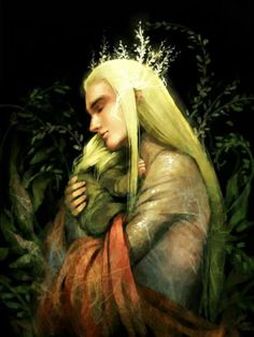
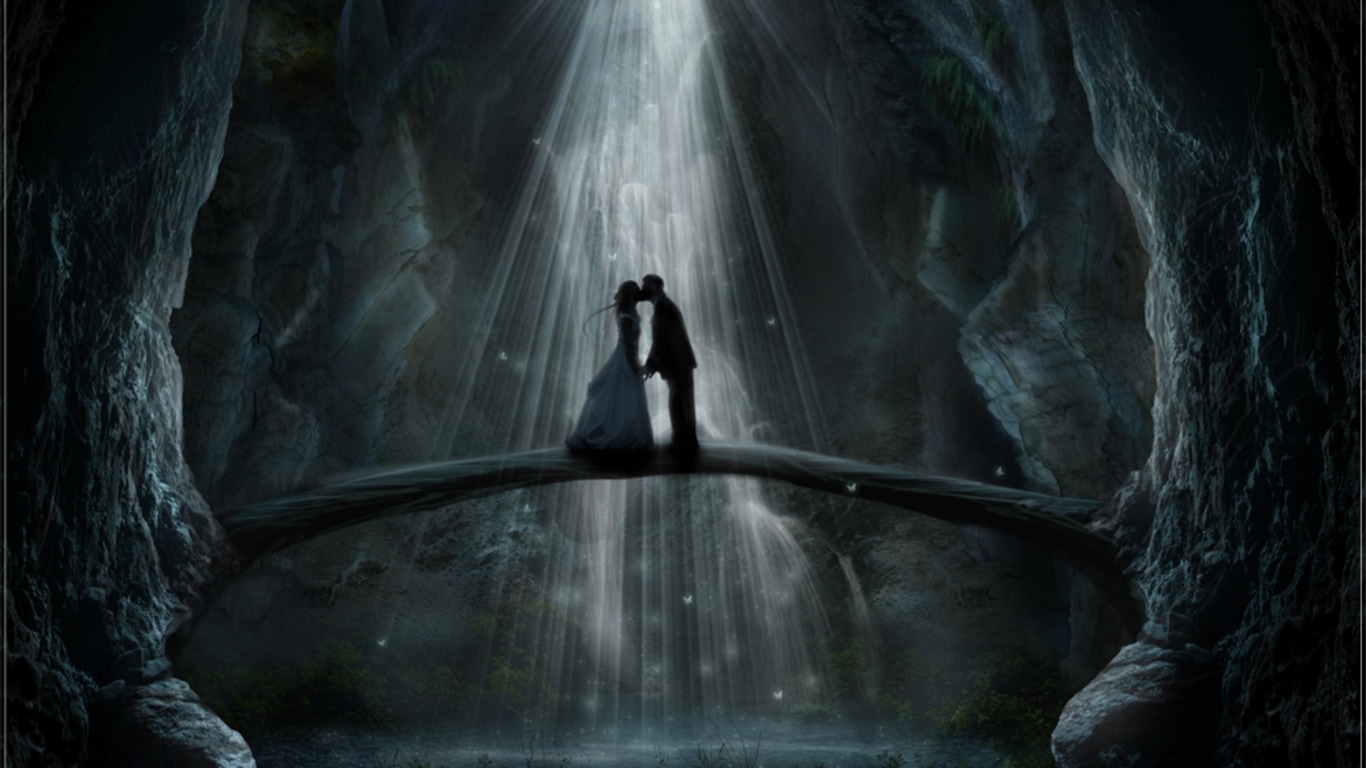
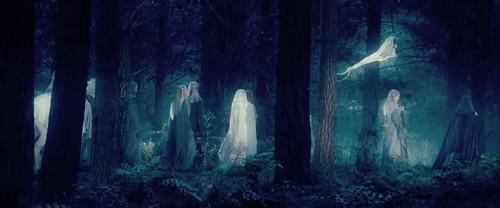
 RSS Feed
RSS Feed 
